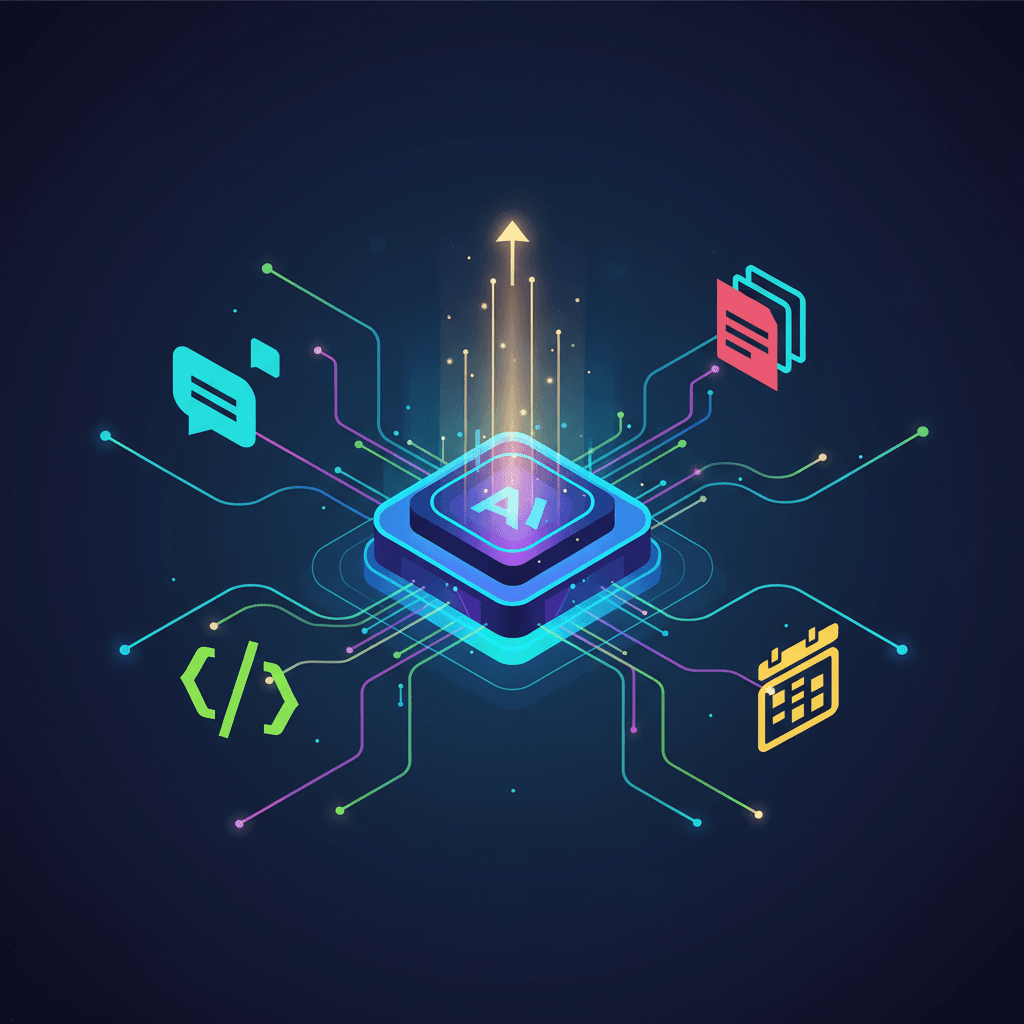OpenAI unleashes Company Knowledge, transforms ChatGPT into enterprise search powerhouse
ChatGPT tackles fragmented enterprise data, becoming a platform-agnostic intelligence layer across all your internal company applications.
October 24, 2025

OpenAI is strategically repositioning its flagship product, ChatGPT, from a general-purpose conversational AI to an integrated enterprise search engine with the launch of its "Company Knowledge" feature. This significant update allows ChatGPT Business, Enterprise, and Education users to connect the AI to their internal workplace applications, enabling it to search and synthesize information from a wide array of company data sources.[1][2] By empowering the chatbot to access and reason over proprietary data stored in tools like Slack, SharePoint, Google Drive, and GitHub, OpenAI is making a deliberate and aggressive push into the lucrative enterprise AI market, aiming to transform ChatGPT into an indispensable central hub for workplace productivity and intelligence.[3][4]
The core functionality of Company Knowledge lies in its ability to break down information silos that plague modern organizations.[4] In many corporate environments, crucial data is fragmented across numerous disconnected platforms, from instant messaging threads and cloud storage documents to project management tickets and internal wikis.[1] This new feature, powered by a version of the advanced GPT-5 model, is specifically trained to search across these multiple sources simultaneously, providing users with comprehensive, context-aware answers grounded in their own organizational data.[2][3] For example, an employee preparing for a client meeting can ask ChatGPT to generate a briefing document by pulling recent conversations from Slack, meeting notes from Google Docs, and support ticket updates from another connected application.[2] A critical component of this system is its commitment to source citation; every piece of information synthesized by the AI includes clickable references that direct the user back to the original document, message, or file, fostering a level of trust necessary for enterprise adoption.[2]
This move places OpenAI in direct competition with technology giants like Microsoft and Google, who have been leveraging their vast enterprise ecosystems to deploy similar AI-powered search tools. Microsoft has been steadily integrating its Copilot AI across the Microsoft 365 suite, while Google has embedded its own AI capabilities within its Workspace platform.[3] While some analysts note that OpenAI may be arriving late to a race already underway, its key differentiator is a platform-agnostic approach.[5] Unlike its competitors, who primarily focus on their own ecosystems, ChatGPT's Company Knowledge is designed to connect with a diverse range of third-party applications, including upcoming connectors for tools like Asana, GitLab Issues, and ClickUp.[2] This strategy positions ChatGPT not as a component within a single software suite, but as a universal intelligence layer that works across the various tools a company already uses, a potentially decisive advantage for businesses that do not rely on a single vendor.
Despite its powerful capabilities, the initial rollout of Company Knowledge comes with notable limitations that shape the current user experience. Users must manually enable the feature at the beginning of each new conversation to access the deep search and citation capabilities.[1][6] Furthermore, when Company Knowledge is active, other ChatGPT functions like searching the public web or generating images and charts are disabled.[1][4] This creates a focused, but somewhat constrained, experience. OpenAI has acknowledged these limitations and stated its intention to merge these functionalities into a more seamless and integrated experience in the coming months.[1] The immediate availability of this feature for enterprise and education tiers, while consumer users still await broader access to GPT-5, clearly signals OpenAI's strategic focus on the enterprise sector as its primary avenue for monetization and growth.[5]
Addressing the paramount concerns of data security and governance is central to OpenAI's enterprise strategy. The company has emphasized that Company Knowledge is built with enterprise-grade privacy and security controls.[6] A foundational principle of the feature is that it respects all existing user permissions, meaning the AI can only access files and data that the individual user is already authorized to view.[1][6] OpenAI has also made a crucial commitment not to use any data from its Business, Enterprise, or Edu customers to train its models by default, addressing a major privacy concern that has slowed corporate adoption of AI tools.[2][6][7] For administrators, the platform offers a robust console to manage which applications can be connected, create custom roles, and configure group-level permissions.[1] Security is further bolstered by SOC 2 compliance and the encryption of all data, both in transit and at rest, alongside support for enterprise standards like Single Sign-On (SSO) and SCIM for secure user management.[2][6]
In conclusion, the introduction of Company Knowledge marks a pivotal evolution for ChatGPT, signaling a clear ambition to become the primary interface for accessing and interacting with internal business information. By tackling the persistent problem of fragmented data and offering a unified, intelligent search layer, OpenAI is mounting a serious challenge to established enterprise software players. While the initial version has limitations that reflect its early stage of development, the feature's core value proposition—a cross-platform, secure, and contextually aware AI assistant—is a powerful one. The success of this venture will ultimately depend on whether enterprises embrace this new level of AI integration and whether OpenAI can continue to innovate while maintaining the high standards of trust, security, and reliability required to handle a company's most sensitive data.[5]